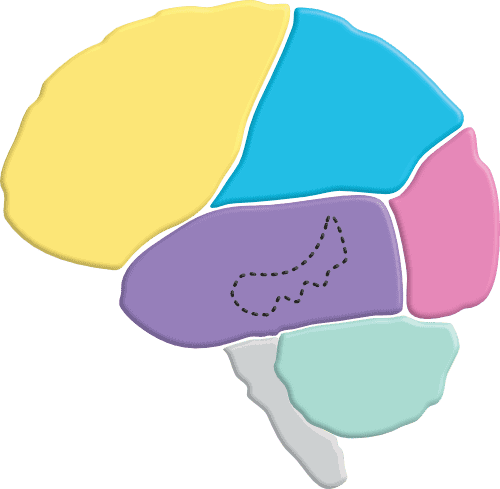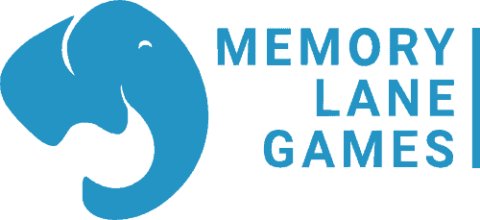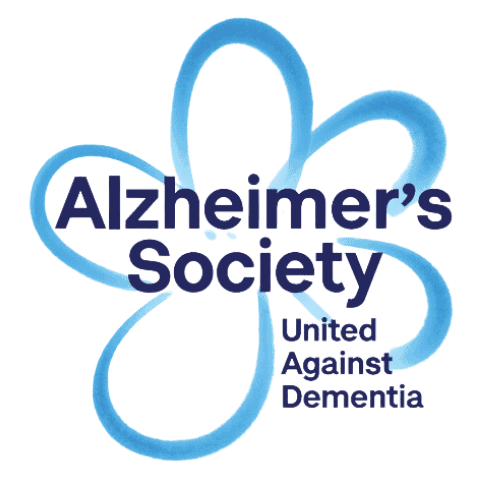Our colourful stimulating images are processed in the area of the brain dedicated to vision and image understanding
Functions of the brain & symptoms of dementia
Frontal Lobe - Higher Mental Function: Word production, problem solving, planning, behavioral control, emotional expression, creativity, judgement
Common symptoms: Include changes to behavior, speech, and mood
Parietal Lobe: Interprets sensations, such as touch, pressure, pain, heat, and cold. Helps with the understanding of objects, shapes, and space
Common symptoms: Include problems with perception, judging distances and three-dimensional spaces
Occipital Lobe - Visual Functions: Coordination of eye movements, perception, image recognition, association, visual memory
Common symptoms: Include problems with reading, recognizing faces, and distinguishing shapes
Temporal Lobe - Association Area: Short term memory, equilibrium, emotion
Common symptoms: Include unusual emotions and finding words
Hippocampus: Learning new skills, forming new memories, special memory (i.e. navigating around and finding where you placed objects)
Common symptoms: Effects of dementia usually originate here and spread to the rest of the brain. Unusually pronounced lapses in memory, and loss of memory (most commonly short-term memory first)
Cerebellum: Plays a major role in balance, voluntary motor skills, coordination & speech

Visual Stimulation
Structured Speech
The conversations triggered by our images and questions mobilise the areas of the brain needed for structured speech
Reading
The written text in our questions triggers the sensory area responsible for reading
Reasoning
Our question-and-answer format call for reasoning and decision making
Emotional Expression
Emotion is a powerful tool, laughter too is often a feature of playing our games
Voluntary Movement
The simple act of raising your hand and touching the correct area of the screen calls for voluntary muscle use, the motor function
Reminisce
Recalling past experiences maintains confidence, self-esteem, and a sense of self. Sharing precious memories improves communication which makes it easier to connect with others





















